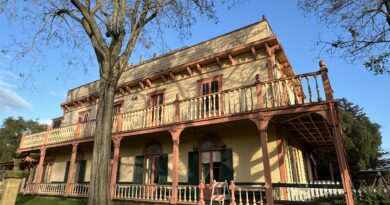Wang Jianlin is preparing to sell the movie Wanda
Wang Jianlin, the Chinese billionaire who once sought to buy a controlling position in Hollywood, is preparing to complete his imminent exit from the film industry. The distressed group is facing pressure to repay debts.
Wanda Film, which remains China’s largest movie theater operator, said Wednesday in a regulatory filing with the Shenzhen Stock Exchange that Wang and his company Wanda Investment expect to sell their remaining 51% stake in the company to China Ruyi Holdings.
Ruyi, which operates in film, television and online gaming, counts gaming, social media and streaming giant Tencent among its biggest shareholders. Previously Hong Kong-listed Ruyi bought a 49% stake in Wanda Investment in July for $320 million (RMB 2.3 billion).
Ruyi did not make any comment on the pending deal. Wanda Film requested a two-day suspension of its shares and simply said: “If the above matters are ultimately implemented, it will result in a change of control of the company.”
Wang, a former army officer turned real estate developer, has become one of the richest people in China thanks to a string of upscale shopping malls and luxury hotels. With a fortune estimated at one time at $46 billion, Wang was known for his punctuality as well as his lavish luxury. He sometimes traveled by two private planes, one for himself and the other for his luggage.
In 2012, he stormed the global entertainment scene with his $2.6 billion acquisition of the American cinema chain AMC. He followed this up with the purchase of: Carmike Theaters in the United States; Hoyts, an Australian cinema operator; Hollywood production company Legendary Pictures; Powerful sports rights agency Infront and a stake in the Atletico Madrid football team.
Wang and Wanda have also built theme parks and threatened to kick Disney out of China when the Mouse House opened the Shanghai Disneyland theme park in 2016.
Wanda purchased a prominent parcel of land in Beverly Hills that was the site of Robinson’s May department store, and after a lengthy campaign won approval to develop a $1.2 billion hotel, apartment and office complex. Wang proposed it to be the global film headquarters for the group.
It is understood that Wang and his lieutenant Jack Zhao sought to buy stakes in several Hollywood conglomerates. Wang expressed his ambitions to reshape the global film distribution system by combining ownership of Hollywood studios with control of the world’s largest film distribution chain.
But when the Chinese government intervened in mid-2017 to prevent banks from lending money to buy out Wanda’s overseas assets for the already indebted company, it signaled the end of Hollywood’s love affair with China, Chinese money and its selfish tycoons.
Soon after, Wanda began selling some of her assets. Among the first were theme parks that failed to scare Disney and a chain of hotels. He later abandoned the Movie Metropolis film studio, festival center, yacht marina and residential complex in the coastal city of Qingdao that he launched with a parade of Western stars in 2013 and finally opened in 2018.
Sales of Chinese assets did not appear to be sufficient, and although some overseas assets were subsequently sold, Wanda has remained on the sick list ever since. The company exited AMC in a phased manner, selling the undeveloped Beverly Hills location and reducing its stake in Legendary. The Hoyts put it up for auction, but did not complete the sale.
Wanda was perhaps one of the first real estate developers in China to be hit by heavy borrowing at a time when the Chinese economy was booming and it seemed like the prices of everything were rising. But with larger property developers, including Evergrande and Country Garden, also facing deep trouble and significantly impacting China’s post-coronavirus economic recovery, he is not alone.
Bloomberg estimates that Wang’s net worth has fallen to about $6 billion.




